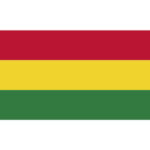

The Ministry of Labor, Employment and Social Security, through Ministerial Resolution No. 1545/2023, has determined to approve prevention and contingency measures to mitigate the effects of air pollution in work spaces.
The approval of these measures arises from the need to protect workers during the environmental emergency caused by the growing emergence of heat sources and air quality pollution.
Below we detail the measures implemented:
– General measures to limit exposure to air pollution
– Workers must use masks (FFP2, N95 or KN95 masks) while carrying out their work activities outdoors, to protect themselves from suspended particles.
– Reduce the use of transportation with combustion engines, fuels and/or substances that may contribute to increasing environmental pollution.
– Hydrate minimally with 1.5 liters of water per day.
– Avoid the use of contact lenses.
– Keep windows and doors closed in the workplace, during the performance of work activities.
– Workers who are likely to be mainly affected by the effects of environmental pollution (the elderly, pregnant women, among others) must avoid exposure and/or carry out outdoor activities. If you have health complications due to exposure to air quality, you should immediately go to a health center.
– Work establishments that are located near the areas with the greatest contamination must place wet towels in door and window slots.
– Avoid contact of people and/or pets with the ashes.
– Employers are obliged to inform and train their workers on contingency and reaction measures in the event of air pollution emergencies.
Measures to reduce emissions from burning materials, biomass and fuels
Agricultural burning, tire burning, waste burning, pyrotechnic burning, as well as avoiding the burning of firewood, charcoal, lighting candles or incense and other materials that contribute to air pollution are prohibited.
Actions to reduce environmental pollution
– The transport of construction materials in open vehicles without a tarp is prohibited.
– Reduce sweeping and grass cutting activities in areas that have medians, gardens and sports fields.
– Reduce the movement of particle-generating materials (clay, sand, gravel, among others), within establishments with storage of construction materials with more than fifty (50) tons in the open.
– Reduce activities that involve the use of explosives.
– Reduce the execution of activities that include construction, demolition and/or earthworks. Those activities indicated above that have mitigation measures for fugitive dust emissions are exempt.
– Avoid patching, painting, paving, works and activities that obstruct or hinder vehicular flow.
– Reduce the activities carried out in fixed or mobile industrial concrete plants that do not have equipment to control chemical emissions.
Restrictions of Industry and Service Sectors
Industries that have manufacturing processes that emit ozone precursors and that do not have emissions control equipment are required to take actions to reduce their emissions between 30% and 40%, starting from their baseline.
Service establishments and/or industries that, in the development of their activities, use products that contain volatile organic compounds for cleaning or degreasing and do not have emissions control, must reduce their activities by 30%.
The facilities of service providing companies, with the exception of health centers that do not have ozone precursor emissions control systems, must reduce the operation of their boilers by 30%.
The execution of activities related to mining, metallurgy, electricity and oil must reduce their atmospheric emissions under the controls of the supervisory agencies in charge of executing control in these areas, while the corresponding alerts are issued in the areas where their activities are carried out.
Pollution prevention and mitigation measures are mandatory for public institutions and private companies, and non-compliance may result in the application of financial fines or sanctions.
For more information contact:
Carla Arellano | Counselor Ferrere | carellano@ferrere.com





